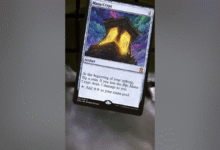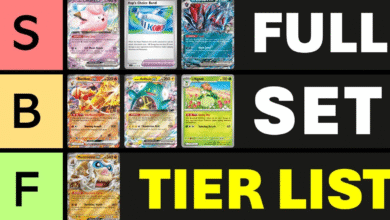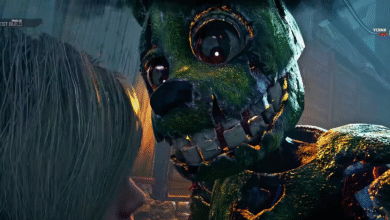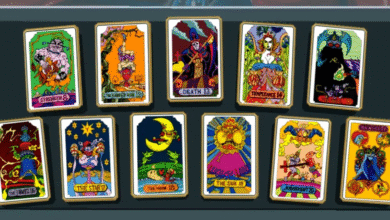UndergrowthGames Contributor: The Heart Behind Indie Horror Content

Explore the world of an UndergrowthGames contributor—the driving force behind unique indie horror game content. Discover how they shape narratives, reviews, and trends in this vibrant gaming niche.
Who Is an UndergrowthGames Contributor?
Being an UndergrowthGames contributor isn’t just about writing or reviewing games. It’s about being part of a living, breathing indie horror community that thrives on creativity, shared passion, and a love for everything eerie. These contributors don’t just play games; they dissect them, explore hidden meanings, analyze mechanics, and tell stories that elevate the gaming experience.
UndergrowthGames, known for its engaging content focused on indie horror and underground titles, is home to a new wave of content creators and gamers who contribute through writing, modding, art, and community building. These contributors often work voluntarily, driven by pure passion and a genuine interest in supporting lesser-known developers and titles.
The Role of a Contributor in the Indie Horror Gaming Scene
If you’re wondering what makes an UndergrowthGames contributor so vital, it’s their ability to spotlight games that might otherwise go unnoticed. These games often lack large marketing budgets, but with the right voice and storytelling, they get noticed, shared, and played. Contributors act as the bridge between indie developers and gamers, curating content that entertains and informs.
Their role goes far beyond writing reviews. Many contributors create walkthroughs, lore discussions, deep analyses of gameplay mechanics, or even video essays. Some even collaborate directly with developers, providing beta feedback or helping shape future updates. That level of involvement helps shape the overall landscape of indie horror gaming.
What Does It Take to Become an UndergrowthGames Contributor?
To become an UndergrowthGames contributor, you don’t necessarily need formal credentials. What you do need is an understanding of the indie horror genre, a unique voice, and the willingness to engage deeply with every game you cover. Whether you’re discussing the narrative structure of “Fear and Hunger” or breaking down the mechanics of “Iron Lung,” your insights should be fresh and meaningful.
Contributors often start by writing blogs, sharing short reviews on social platforms, or submitting guest posts. Once recognized, many are offered the chance to write more frequently for platforms like UndergrowthGames. It’s a natural progression that rewards consistency and creativity. The community thrives on trust and authenticity, so staying true to your voice is crucial.
The Unique Style of UndergrowthGames Content
Content on UndergrowthGames often embraces a raw, gritty style—one that mirrors the tone of the games it covers. Contributors lean into the fear, the atmosphere, and the unease that indie horror games are famous for. But they do more than just describe it; they explain why it works.
An UndergrowthGames contributor usually dives into symbolic themes, cultural references, and emotional triggers within the game world. For instance, in reviews of psychological horror games, contributors explore how sound design evokes dread or how subtle animations create a lasting impression. This depth of analysis sets UndergrowthGames apart from mainstream review sites.
Why Contributors Matter in the Gaming Ecosystem
Let’s be honest—without contributors, indie horror would struggle to reach wider audiences. The average gamer might never hear of a game like “Dread Delusion” or “Faith: The Unholy Trinity” if not for passionate contributors highlighting their merit.
These contributors are not just content creators; they’re evangelists for the genre. They help indie developers reach more eyes and ears by creating SEO-optimized content, thoughtful critiques, and community guides. When these pieces rank well or go viral, the game benefits. That kind of organic visibility is priceless in the indie world.
Types of Content an UndergrowthGames Contributor Creates
The spectrum of content produced by contributors is impressively diverse. From in-depth analysis to memes, here’s what you might see:
| Content Type | Description |
|---|---|
| Game Reviews | Thoughtful, story-driven evaluations with emotional resonance |
| Developer Interviews | Behind-the-scenes looks into development and design choices |
| Lore Explainers | Deep dives into in-game mythology, character backgrounds, etc. |
| Opinion Pieces | Essays on trends, tropes, and innovations in indie horror |
| Video Essays | Visual content exploring game mechanics or thematic elements |
Each format serves a purpose and reaches different segments of the community. A single contributor might dabble in several types, depending on their skillset.
Traits of a Successful UndergrowthGames Contributor
Great contributors share several common traits. First, they’re curious. They want to know why a game is scary, not just that it is. They ask questions about artistic intent, gameplay balance, and user experience. This curiosity leads to content that resonates with readers.
Second, they’re disciplined. While creativity is crucial, consistency and deadlines matter just as much. The best contributors don’t wait for inspiration—they write, edit, and publish regularly. This reliability builds credibility.
Third, they’re connected. Whether it’s networking with developers, engaging in comment sections, or collaborating with other creators, staying active in the community is vital. Being part of the indie horror conversation ensures your content stays relevant.
Collaborations and Community Building
One of the most rewarding parts of being an UndergrowthGames contributor is the opportunity for collaboration. Whether it’s co-writing a piece with another fan or teaming up for a multi-part video series, the sense of community is strong. Contributors frequently share each other’s work, offer constructive feedback, and promote new creators.
This collaborative spirit helps strengthen the platform as a whole. By working together, contributors ensure that no game—no matter how niche—slips through the cracks. They also create an ecosystem where indie horror can thrive, independent of big studios or mainstream outlets.
The Emotional Payoff of Contributing
The satisfaction of being an UndergrowthGames contributor often comes from impact rather than income. Watching your article spark conversation, help a small developer gain traction, or simply reach a reader who feels seen—that’s the real reward.
Contributors frequently hear from players who discovered a new favorite game because of their content. Developers also express gratitude for meaningful coverage. These connections are fulfilling and validate the time and energy contributors pour into their work.
SEO, Strategy, and Discoverability
While passion drives the content, strategy ensures it gets seen. Many successful UndergrowthGames contributors understand basic SEO principles, such as keyword placement, meta descriptions, and internal linking. This doesn’t mean writing robotically—the goal is still authentic storytelling. But optimizing content helps indie horror get the attention it deserves.
Choosing the right headlines, including relevant subheadings, and writing scannable paragraphs all play a role. Contributors also use alt tags for images, add social previews, and leverage platforms like Reddit and Discord to distribute their work. These small actions collectively boost visibility.
How to Start Your Journey as an UndergrowthGames Contributor

If you’re ready to become an UndergrowthGames contributor, the path is surprisingly accessible. Start by playing indie horror titles and writing about your experiences. Submit guest posts, participate in community forums, and reach out to current contributors for advice.
Keep your content genuine. Avoid generic statements and instead, focus on what makes each game stand out. Engage with your audience through comments, Twitter threads, or YouTube channels. The more involved you are, the faster you’ll grow.
Challenges Contributors Face
Being a contributor is rewarding, but not without its challenges. Burnout is real, especially when juggling content creation with other responsibilities. There can also be moments of imposter syndrome, especially when covering complex games or discussing deep themes.
Staying motivated during dry spells—when traffic is low or engagement drops—requires mental resilience. Still, the community support system is strong, and many contributors lift each other up through these tough times.
Quotes from Real Contributors
“Writing for UndergrowthGames gave me purpose during a tough time in my life. I got to turn my fear into fuel.”
—Alex, Contributor Since 2022
“It’s more than games. It’s a community of thinkers, artists, and fans who love horror.”
—Maya, Video Essayist & Contributor
“We’re not here for fame. We’re here for the thrill of the dark, the weird, the undiscovered.”
—David, Writer & Game Modder
FAQs About UndergrowthGames Contributors
What is an UndergrowthGames contributor?
An UndergrowthGames contributor is someone who creates content about indie horror games, including reviews, essays, interviews, and more. They help promote lesser-known titles to a wider audience.
Do contributors get paid?
Some may be paid for their work, especially if they have a large following or work consistently. However, many do it out of passion and for the love of indie horror.
How do I become a contributor?
Start by creating your own content and sharing it with the UndergrowthGames community. Engage with others, build your voice, and consider submitting guest posts.
Is prior experience required?
No, but a strong understanding of the genre, writing skills, and a consistent voice are helpful. Anyone with passion and dedication can start contributing.
What types of content are most popular?
In-depth reviews, lore explainers, and opinion essays tend to resonate well with the community. Unique perspectives and original analysis are especially valued.
Conclusion: The UndergrowthGames Contributor Legacy
Being an UndergrowthGames contributor is more than a title—it’s a calling. You become a storyteller, a critic, a fan, and sometimes even a friend to indie developers. Your words can spark interest, build fandoms, and preserve the magic of games that might otherwise be forgotten. In a world overwhelmed by AAA noise, you help shine light on the strange, the small, and the spooky. And that matters.





